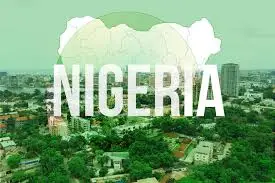Nigeria, known as the “Giant of Africa,” is wealthy in regular assets, with a sizable populace and an energetic culture. In any case, let us tell the truth: Nigeria has all the earmarks of being a terrible joke, but it turned out badly in many regards. It is easy to contemplate whether the country is working as it ought to, given the unfortunately significant expense of living, lacking government assistance programs, deficient security, and imploding medical care frameworks. Could you allow us to take it apart?
1. Security: Where is it?
The sad truth is that Nigerian security is a ceaseless bad dream. One begins to think about whether security is for sure a top worry for the public authority considering the Boko Haram rebellion in the northeast, banditry in the north-central, kidnappings in the other parts of the north and south, internet fraud, and scams. It appears to be like another security issue emerges each time you turn around.
These days hijackers and scoundrels kidnap blameless regular folks and request recovery. At the point when the correspondence is made and delivered the telephone association is never followed to get the offenders. The guilty parties appear to have a filled day and in some cases do giveaways and gifts to the Nigerian people on TikTok and X( twitter) consequently giving a feeling that such a barbaric demonstration is rewarding without them being caught.
Policemen are often underpaid, underequipped, and overwhelmed, which only adds to the problem. According to Amnesty International, cases of extrajudicial executions and erratic captures are among the various common freedoms infringements that emerge from Nigerian military tasks against rebels. It is not a great look when the people meant to protect you are either inefficient or contributing to the chaos. (Amnesty International, 2021 Report on Nigeria.)
2. Absence of Government Assistance Projects.
You would need to look harder than a kid on Christmas day to track down the last sweet treat or presents from Santa Claus if you are looking for government benefits in Nigeria. Government assistance programs are nonexistent in Nigeria, as opposed to a few different countries where federal retirement aid frameworks are set up to help the elderly, the crippled, and the jobless.
A huge number of the elderly depend on family backing or humble occupations to earn a living wage since they at times go months or even a very long time without getting their pension. To add to injury, the public authority eventually considered going to a pension fund to borrow money to secure the same extravagant way of life to the detriment of the retired civil servants who have given their best to serve the nation. The government’s palliative efforts, like during the COVID-19 pandemic, left much to be desired. The alleged “distribution” of aid and relief funds was chaotic and insufficient. The greater part of this was redirected for political use and when the residents figured out what the goals of legislators were they needed to steal from the warehouses where this palliative was kept. Truly, the one regular thing in Nigerian government assistance strategy is its irregularity.
3. The Medical Services Industry: A Delayed Bomb
Assuming you have at any point visited a Nigerian government clinic or had an encounter with a friend or family member requiring clinical assistance, you would have without a doubt seen scenes that make you question reality. The clinics need satisfactory financing, staffing, hardware, and clinical experts who are thoughtful of the states of their patients. Patients are sometimes left hanging when clinical staff take to the streets in dissent of their neglected compensation and horrifying working circumstances.
At 54 years of age, Nigeria has one of the most reduced futures on the planet, as indicated by World Health Organization (WHO) research. A serious shortage of clinical specialists has come about because of many specialists leaving the country looking for better opportunities outside. Also, the rate of maternal and infant mortality are among the highest on the planet. (World Health Organization (WHO), Life Expectancy Data.)
4. The Crazy Cost of Living.
When the naira had some value, do you remember it? Yeah, neither do we. The cost of living in Nigeria has skyrocketed in recent years, with inflation reaching astronomical levels. For the regular Nigerian, fundamental necessities like food, petroleum, and lodging have gotten increasingly costly.
The pitiful 70,000 naira (about $43) minimum wage permitted by law barely pays for a family’s month-to-month food costs. Furthermore, people are investing more energy and time in lines hanging tight for necessities than they are getting a charge out of life because of occasional fuel deficiencies and developing transportation costs. (Central Bank of Nigeria, Inflation Rates Report 2023.)
The gap between the rich and the poor continues to widen, and it doesn’t help that legislators, who intended to resolve these issues, now and again show up more concerned about their monetary profit. Since when, precisely, when last did a legislator get worried about the expense of garri?
An Unseemly Joke
At last, it appears like Nigeria is that joke that everyone tells except nobody views as funny. Notwithstanding the shortfall of safety, for the typical Nigerian, life is hard really hard because of an absence of safety, deficient government assistance, insufficient medical services, and high cost of living. Very worrisome.
Nigeria is not without potential; a remarkable opposite. Potential, be that as it may, cannot accommodate or defend individuals. If tremendous changes and obligations are not taken, the joke may just deteriorate.

